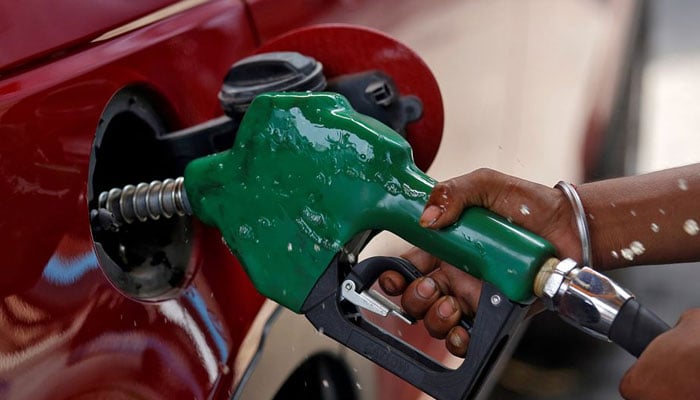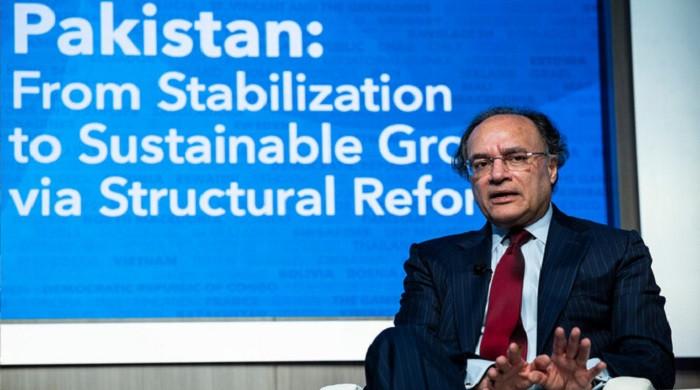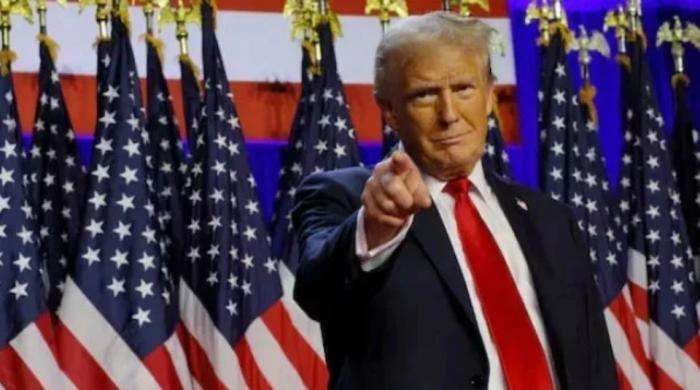Govt jacks up petrol price by nearly Rs15 per litre
Starting from July 1, price of petrol will be Rs248.74/litre, while diesel will be available at Rs276.54/litre
June 30, 2022

- Starting from July 1, price of petrol will be Rs248.74 per litre.
- Diesel will be available at Rs276.54 per litre.
- Coalition govt, since coming to power, has raised price of petrol by Rs84.
ISLAMABAD: The federal government, once again, jacked up the price of petroleum products on Thursday for the next fortnight, putting an additional burden of nearly Rs15-18 per litre on the masses.
The Finance Division, in its notification, said that in view of the fluctuations in petroleum prices in the international market and exchange rate variation, the government has decided to partially apply a petroleum levy, and revise the existing prices of petroleum products “as agreed with the development partners.”
The new prices will be effective from July 1, 2022.
With the fresh hike, the price of petrol will be Rs248.74/litre, diesel will be Rs276.54/litre, kerosene oil will be sold for Rs230.26/litre, and the price of light diesel oil will be Rs226.15/litre.
The coalition govt, since coming to power in April, has raised the price of petrol by Rs84. It had first raised the petrol price by Rs30 on May 26, followed by another increase of Rs30 on June 2. And on June 15, it hiked the price by another by Rs24 today.
Product | Existing prices w.e.f 16-06-2022 | New prices w.e.f 01-07-2022 | Increase/(-) Decrease |
| Petrol | Rs233.89 | Rs248.74 | +14.85 |
| Diesel | Rs263.31 | Rs276.54 | +13.23 |
| Kerosene oil | Rs211.43 | Rs230.26 | +18.83 |
| Light diesel oil | Rs207.47 | Rs226.15 | +18.68 |
Pakistan sees 'significant success' on talks with IMF
Addressing a press conference flanked by State Minister for Petroleum Musaddaq Malik, Finance Minister Miftah Ismail said that Pakistan has seen “significant success” in talks with the International Monetary Fund (IMF) programme and after several deliberations, the two sides are optimistic about the revival of extended fund facility.
“Pakistan has also received the Memorandum of Economic and Financial Policies (MEFP) for the seventh and eighth review under which there are some prior actions,” he said, revealing that among those was to increase the price of petrol through petroleum development levy (PDL) in order to revive the programme.
He reiterated that the Imran Khan-led government had decided to increase the price of petroleum products by Rs4 per litre every month; however, the PTI government broke IMF’s promise and gave subsidies which added pressure to the exchequer.
IMF programme extended: Miftah
“We have restored the same IMF programme which was initiated by the previous government,” he said, highlighting that the price of petrol was also rising in the international market.
According to the agreement signed by the PTI government, general sales tax (GST) should have been levied at the rate of 7% on the prices of petroleum products.
Miftah announced that the IMF programme has been extended by one year and the total programme outlay will also be raised by $1 billion.
Speaking on the occasion, Malik said that it would take nearly four-five months for the situation to improve.
“Our government is focusing on two major things: providing employment to the poor and controlling rising inflation,” he said, adding that the country was facing a similar situation back in 2013.











